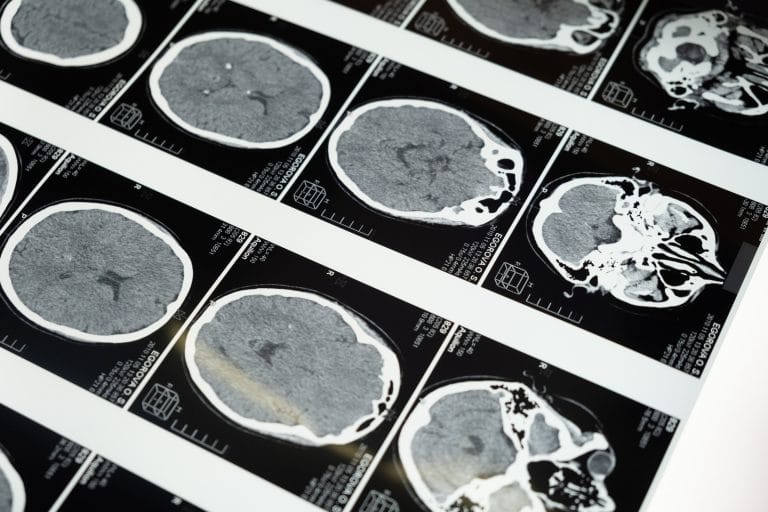A traumatic brain injury (TBI) is a serious medical condition that often results from a violent blow or jolt to the head that temporarily impairs the function of the brain. Some common causes of TBI include:
- Car accidents
- Falls
- Sports or recreational injuries
- Gunshot wounds
The symptoms of a TBI can vary widely depending on the severity of the injury. Some appear right away, while others can come on days or even weeks later. They can include:
- Headache
- Nausea and vomiting
- Dizziness or loss of balance
- Sensitivity to light and sounds
- Being dazed and disoriented
- Losing consciousness for several seconds to hours depending on the severity of the injury
- Blurred vision
- Tinnitus (ringing in ears)
- Hearing loss
Hearing Loss After Brain Injury 
Hearing loss can occur in a fair number of patients who have had a TBI. One systematic review of 773 patients with a previous TBI found that 58% experienced some degree of hearing loss after their injury.
There are several possible explanations as to why someone might experience hearing loss after a head injury, including damage to hair cells within the cochlea, auditory nerve, and/or parts of the brain that process language and sound.
Some additional causes may include:
- Torn eardrum that can cause blood to accumulate in the middle ear
- Broken ossicular bones found in the middle ear, which can cause sound to not travel properly
Tinnitus is Common
In addition to hearing loss, up to 53% of individuals suffering from traumatic brain injuries experience tinnitus.
Tinnitus is known as a ringing in the ear, but some people also experience it as a hissing, buzzing, roaring or other noise. While tinnitus is not a dangerous condition, it can be a very disorienting one that negatively affects your quality of life.
Treatment Options for Hearing Issues After TBI
Treatment options will often depend on the cause of your TBI-related hearing loss or tinnitus. If your hearing loss is caused by a ruptured eardrum, for example, you will likely regain hearing once it heals. However, sometimes hearing loss caused by a head injury is permanent.
If you have any auditory symptoms after a TBI, get your hearing checked as soon as possible. If your hearing loss is permanent, hearing aids can help manage your symptoms. They can also help manage tinnitus.
Dealing with untreated hearing loss or tinnitus after a traumatic brain injury can make it hard to do things like spend time with friends or enjoy a family concert at Levy Park. It’s important to know that effective treatment options are available.
If you would like more information or to speak with one of our experts, call Hearing Systems to schedule an appointment today.

